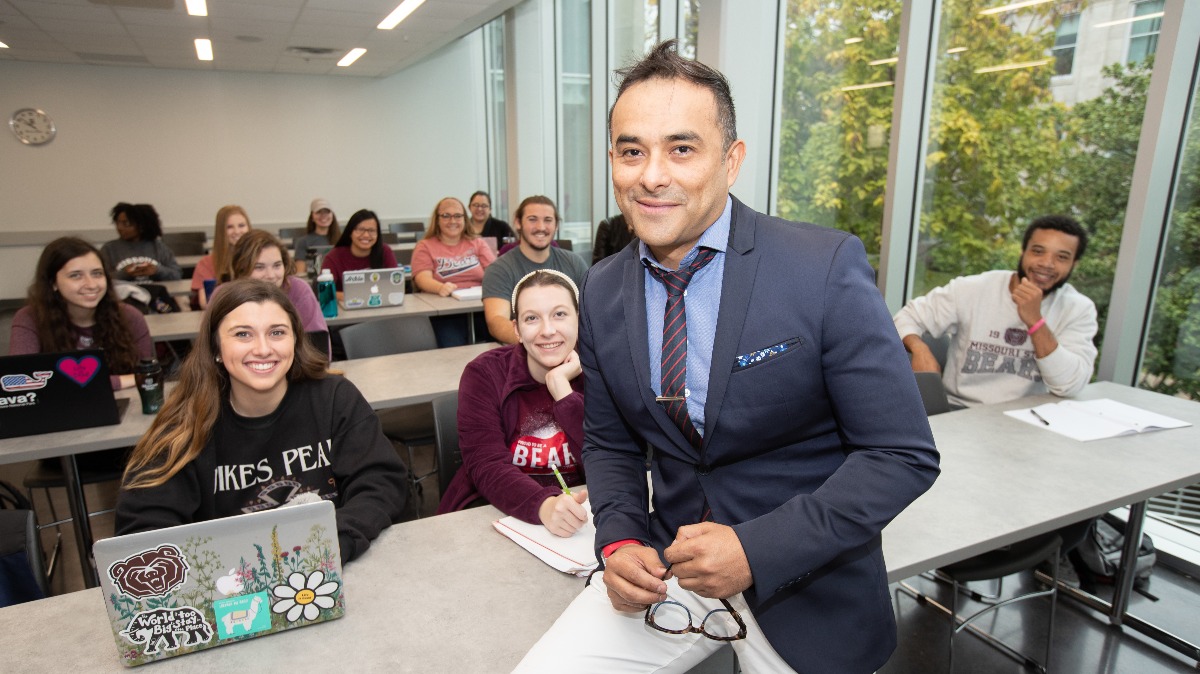Master-level classes come with more responsibilities. They can also come with more rewards.
In those taught by Dr. Albert Barreda, associate professor of hospitality leadership, students prepare and publish academic articles as part of their final projects under his guidance.
Other faculty members in the department of hospitality leadership have joined Barreda and his students in their efforts.
Recently, their collaborative work resulted in the publication of two book chapters and four research articles. This outcome reflects an impressive 100% acceptance rate of their research.
Barreda shares how the efforts will impact students’ success in the hospitality and tourism industries.
Investigating industries
Students in Barreda’s master classes conduct hands-on research on several topics related to the hospitality and business industries. These topics include:
- Management consulting.
- Hotel real estate.
- Online retention strategies in education.
- Simulations as business learning tools.
- Citizen behavior theory.
- Gastro diplomacy.
While these topics are trending now, many lack previous studies of their material, Barreda explains.
“These trending topics in research are key to the industry,” Barreda said. “Studying them in a way that allows for direct hands-on experience allows students to enrich their industry knowledge and practical skills.”
Shaping students’ experience
Katy Seery, alumna of Missouri State, served as lead author of a research article while taking one of Barreda’s master-level classes.
She completed her graduate studies in project management and the Hospitality Administration Graduate Certificate program in May of this year. Barreda served as her research mentor.
Seery received different expert perspectives on topics by collaborating with the department’s faculty members on her work.
“Working with faculty members on my paper was great because they had gone through the process before,” Seery said. “They helped me navigate the unknown territory, gave great input and encouraged me throughout the process.”
Seery focused her research on learning how to better retain online students, as many encounter issues that prevent them from continuing their studies.
She explains this has become a very timely topic in the current climate of COVID-19.
“The master-level classes combine professional experiences with management theory and real-world applications,” Seery said. “This allows students to fine-tune their hospitality business skills and learn how to lead a team more effectively.”
About the publications
The book chapters and research articles co-authored by hospitality leadership graduate students and faculty include:
Research Articles
- Seery, Barreda, Dr. Stephanie Hein, department head of hospitality leadership, and Dr. Jokima Hiller, assistant professor of hospitality leadership, published “Retention Strategies for Online Students: A Systematic Literature Review.”
- Graduate student Grayson Jamroch, Barreda and Dr. Yoshimasa (Nancy) Kageyama, assistant professor of hospitality leadership, published “The Relationship Between Organizational Self-Esteem, Commitment, Tipping and Organizational Citizenship Behaviors: A Case in the Foodservice Industry.”
- Wajeana White, instructor of hospitality leadership, Barreda and Hein published “Gastrodiplomacy: Captivating a Global Audience Through Cultural Cuisine – A Systematic Review of the Literature.”
- Graduate student Lana Koelling, Barreda, Kageyama and Dr. Liza Cobos, assistant professor of hospitality leadership, published “Games and Simulations in Hospitality Education: A Systematic Literature Review.”
Book Chapters
- Barreda, Hein and graduate student Cindy Forde published “Real Estate in Hospitality Chapter” of Hospitality: An Introduction 17th Edition.
- Barreda, Kageyama and graduate student Phillip Lehane published “Consulting Management in Hospitality Chapter” of Hospitality: An Introduction 17th Edition.
“These collaborative efforts among faculty members and graduate students serve to strengthen the research knowledge and leadership available to the hospitality and tourism industries,” Barreda said.

